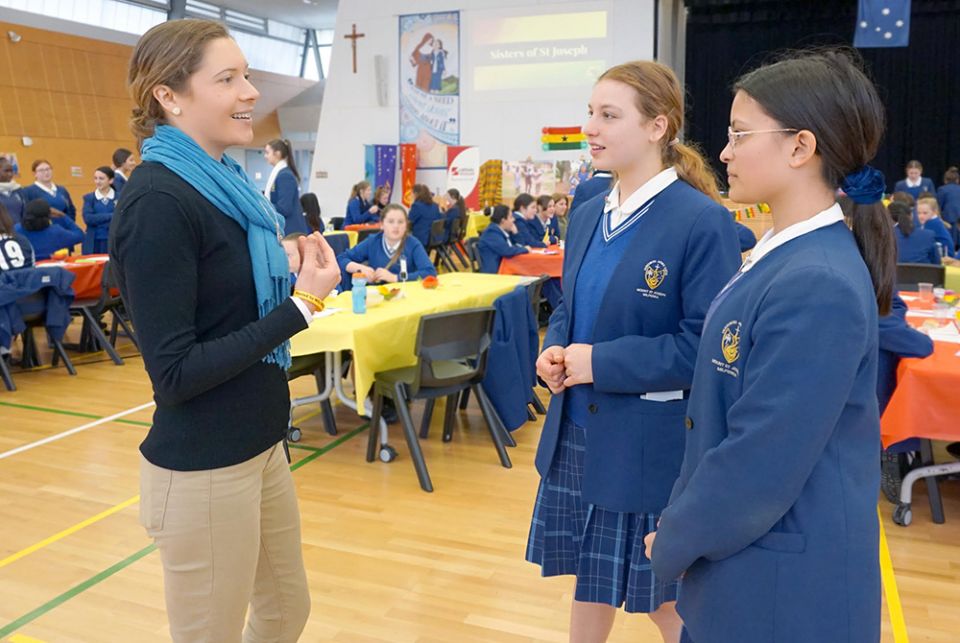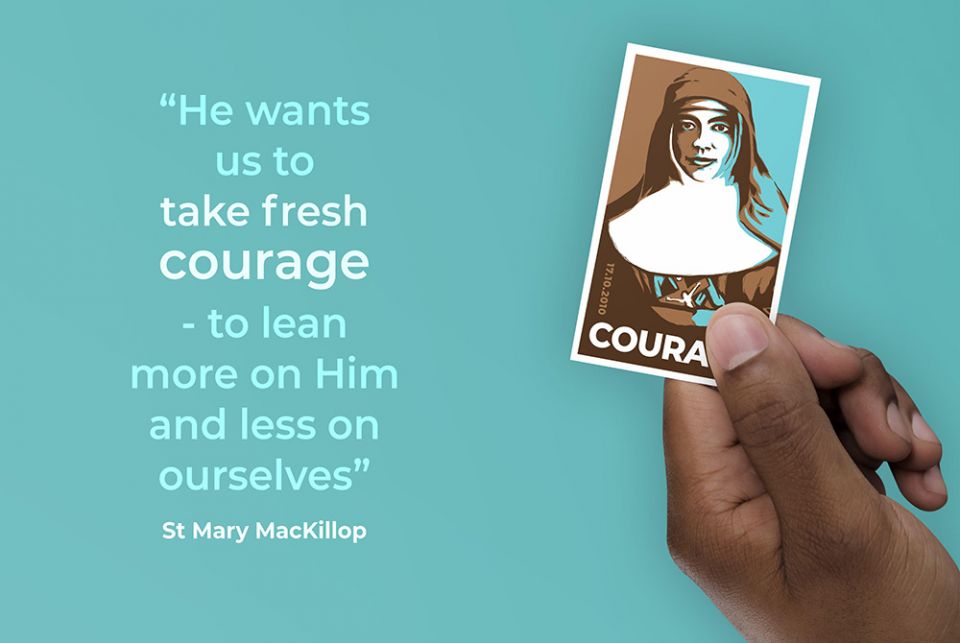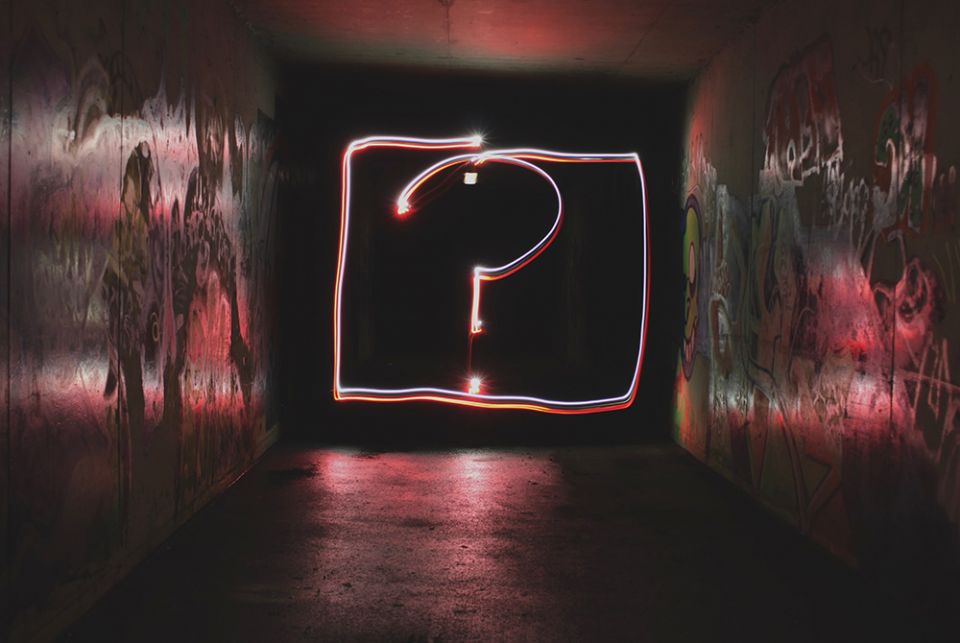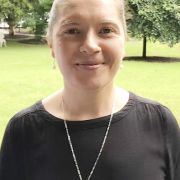"Are you serious? I mean, c'mon? Really?"
Recently I heard these words exclaimed from the lips of a frustrated teacher while she loomed over a photocopier at school. Her words, proclaimed with gusto, were like greyhounds bursting out of the gates — and they're off. …
When I heard her, I happened to be on my knees, trying to figure out how to load paper into Tray 7 (God only knows where that is). At first I was startled, but then found myself empathizing with her frustration. I stood up to ask if she was OK, our eyes met, and before I knew it, we were both laughing and crying at the same time.
Her arms were flung out like rubber bands expanding, and suddenly those arms snapped back — and I found myself wrapped up in love. As we embraced, rocking side to side, our teary eyes both welled up as our hearts contemplated joy and sadness. I felt her pain and she felt mine: We were, indeed, in it together.
It seems to me that 2020 was the year of reverberantly rhetorical "Are you serious?!" moments.
Watching from "Down Under," we have a unique take on the world. Australia, New Zealand and the Pacific Islands are far removed in physical distance from Asia, Europe, Africa and the Americas. If viewing world news is anything to go on, I understand that all countries have been affected differently. But I have also seen a new emergence of a constant for all. We have all lost our sense of certainty, we have all lost control in a new way. Gone are the days when we could plan in school, or in other ministries.
2020 was undoubtably a year for the classic Merton Prayer: "My Lord God, I have no idea where I am going. I do not see the road ahead of me. I cannot know for certain where it will end." I wonder if Thomas Merton would have befriended the classic saying, "If you want to make God laugh, tell God your plans." Well, I hope you're having a good laugh, God, because I have a few words for you!
With the confusion and inability to plan, I have found myself saying "I don't know" a lot more. People often ask: When will you see your family in New Zealand? What will your school do for the end of year? What will you be doing next week? The response to all: "I don't know." And you know what? I'm finding that there is a freedom in not knowing.
1 c.jpg

I've come to see this time in many ways as a gift — the gift of not knowing. If my God/our God is truly all-loving, then this must be a gift of love we have all received. All the "I don't know" moments, seemingly packed full of emotions such as joy and grief, all revolve around God's grace. My joy grows by welcoming "not knowing." If Jesus reminds me to let go and forgive seventy-seven times (Matt 18:21-22), then perhaps I also need to keep choosing to not know, not once, but infinitely seventy-seven times more?
Lately, I've also been asked by staff and students, "Where is God in all this?"
Oh boy, trying to know God's ways seems to me like trying to know how to herd cats — their destination is surely best left unknown! As we do know, there is much mystery to our faith, the surprising ways of God are not always our ways. As Isaiah reminds me: "For my thoughts are not your thoughts, nor are your ways my ways, says the Lord." (Isaiah 55:8). This feels like a time when I/we are being invited to live more and more into mystery, becoming more comfortable with not knowing, and most certainly not planning. As Joyce Rupp puts it, "The difference between confusion and 'don't know' is that confusion can only see one way out and that way is blocked, while 'don't know' is open to miracles and insights."
Advertisement
Advertisement
In seeking ways to live with this new mysterious uncertainty, and perhaps even find some collective joy in it, we have adopted some new language as individuals and community at school. For example, we have picked up on the term already in use in the medical community: "Covid Brain." The way we use it, having Covid Brain does not mean you have the virus, but instead symptoms that include disbelief, inability to plan, forgetfulness, tears with simultaneous laughter, and general feelings of "C'mon … what … really!?" For example, when a teacher misplaces his/her/their keys for the fifth time, and sends an email to all staff, one could easily proclaim an explanation: "Covid Brain!" Thank God for the "calamity of community."
Amidst the uncertainty and many Covid Brain moments, a deeper awareness of one other constant has emerged — through all the surprises, tears and "I don't know" moments, God is with us 24/7. As I continue to run or walk in nature, it reminds me that our loving God is ever present, ever transforming and closer than I can imagine.
4 c.jpg

I've more deeply realized this year that I need to trust in the presence of God, while fallibly letting go into the "Are you serious?" mystery. It's not easy, but by choosing "I don't know" while trusting in God's constant transforming love, my vision has cleared to hear the birds chirping, see ducklings waddling, kangaroos pouncing, sun rising and sun setting — transforming, making all things new, in God's time, in God's ways.
This year was also special for our congregation. On the October 17, 2010, our co-founder St. Mary MacKillop was canonized in Rome. Ten years on, she especially reminds us to renew our courage and trust more deeply in God through the surprises and uncertainty. She wrote to sisters in 1877, expressing her relationship with God: "He wants us to take fresh courage — to lean more on Him and less on ourselves." So, perhaps when you next load paper into your printer, feel a sense of "don't know," think about herding cats, or hear birds chirping, you might spare a thought for us Down Under. We may be far away in distance, but we are all connected through and to the sacred mystery. May our hearts remain united, leaning on God and collectively proclaiming with courage, "I don't know."
Like what you're reading? Sign up for GSR e-newsletters!



